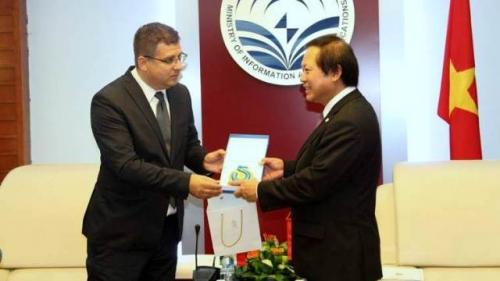Big Brother Hungary Takes Vietnam Under its Technological Wing

Big Brother Hungary Takes Vietnam Under its Technological Wing
According to newspaper Nhan Dan's reporting, Minister of Information and Communications Truong Minh Tuan, Vietnam "wants to learn from Hungary's experience in developing information-technology (IT) policies in the context of the fourth industrial revolution." These efforts come at a time when urbanization and modernization are occurring in Vietnam's largest cities at rapid rates. The article does not go into detail regarding the reasons why Hungary and Vietnam agreed on this cooperation, but it was mentioned that this partnership has been the product of an ongoing conversation between the two nations beginning in 2014. The Vietnamese government, well-known for its rampant corruption, has articulated intention to modernize Vietnam's public administration by gaining experience in developing information safety laws and policies, databases for health care and social welfare, and e-commerce. One can certainly question these efforts as a means of covering up the Vietnamese government's questionable actions in the past and boosting its image in the eyes of the public. The article also does not touch upon the repercussions of modernization, which tends to be concentrated in Vietnam's urban areas on Vietnam's prominent rural regions.
It will be interesting to see how this partnership permeates Vietnam's trade and commercial transactions with Hungary and affects future political developments, especially those dealing with the Central European sphere. It will also be interesting to see how this dynamic of modernization affects relations between rural and urban populations and shapes the image Vietnam will ultimately convey to other entities in the international community.
Comments
It is a curious relationship, really. When one thinks of world leaders in IT and other political models, one does not immediately conjure up Hungary. The question is whether this is random, run of the mill, diplomatic expressions of mutual praise, or if it is a real emergent partnership.
Pages